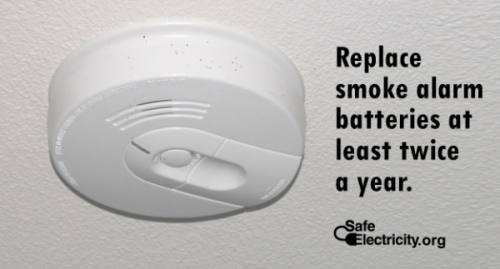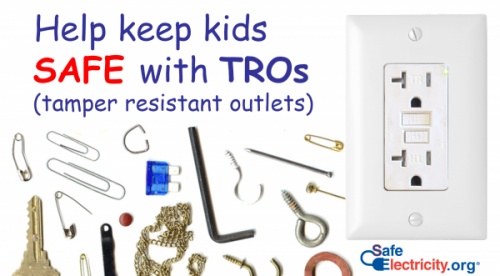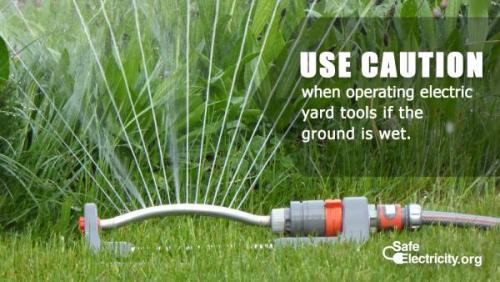Electricity is a wonderful tool that makes our lives easier, but even in your own home it can be dangerous if handled improperly. Sussex Rural Electric Cooperative highly encourages its members to always treat electrical appliances with caution, and to always keep advice like the following in mind:
Fire Prevention
- Have a licensed, qualified heating technician service your furnace or heating system.
- Change heating system filters to keep air passing through.
- Replace batteries in your smoke detectors and carbon monoxide alarms at least twice per year.
- Keep electric heaters on level surfaces and 6-8 feet from furniture, curtains, and drapes.
- NEVER plug more than two appliances into one outlet. Overloading an outlet can blow a fuse or even cause an electrical fire.
- Avoid using extension cords on a permanent basis. These are meant for temporary use.
- Keep cooking areas clear of other items, particularly items that could ignite, like oven mitts, wooden utensils, food packaging, etc. Keep the area clean and free of grease.
- Make sure cords are not frayed or cracked, placed under carpets or rugs, or located in high traffic areas. Do not nail or staple them to walls, floors, or other objects.
- Always have a working fire extinguisher on hand and know how to operate it.
Other Indoor Safety Tips
- Don’t use electrical appliances around wet areas like bathtubs or sinks.
- Dry your hands before using electrical appliances.
- Check outlets for loose-fitting plugs. Replace missing or broken wall plates so wiring and components are not exposed. If you have young children at home, cover unused outlets with plastic safety caps.
- Never force plugs into outlets. Don’t remove the grounding pin (third prong) to make a three-prong plug fit a two-prong outlet. Avoid overloading outlets with adapters and too many appliance plugs.
- Check wattage to ensure light bulbs match the fixture requirements. Replace bulbs that have higher wattage ratings than recommended. Screw them in securely.
- TROs (Tamper Resistant Outlets) can help prevent children from accidentally electrocuting themselves.
- Make sure outlets near sinks are equipped ground fault circuit interrupters (GFCIs) to prevent shocks. Test them regularly.
Outdoor Safety
- Never let your kids climb trees near power lines. A tree may be inviting climbers, but trees near power lines could be conductors of electricity if branches are touching the wires. Even if branches are not touching power lines, they could end up making contact with them if weight from a child is added.
- Open areas are great places to fly kites and model airplanes, but do not fly them near overhead power lines or electrical substations. A kite string can conduct electricity from an overhead power line to the person on the ground.
- Storm fronts can move rapidly, and lightning is a potential danger 10 miles in advance of a storm. Make sure that your children know “If thunder roars, go indoors” and not to seek shelter under a tree or open picnic shelter.
- If electric wires in your neighborhood have sagged for some reason or a tree limb has pushed the line out of place, keep your neighborhood safe by alerting your electric utility.
- Do not swim around docks with electrical equipment or boats plugged into shore power.
- When working with electrical tools outdoors, use caution if the ground is wet.
- When beginning a digging project, always call 811 a few days beforehand. This is the national "Call Before You Dig" phone number to help prevent people from coming into contact with underground utility lines during digging projects.



